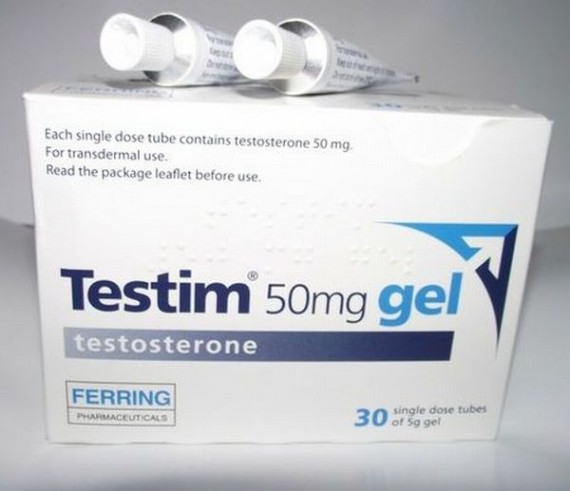
The U.S. Food and Drug Administration (FDA) is requiring the manufacturers of the topical testosterone gels AndroGel and Testim to include a “black box warning” on its labels in order to “protect children” from the potentially adverse effects of this particular anabolic steroid. The “black box warning” is the FDA’s most serious warning short of recalling a product. The action is based on eight recent reports of children who were accidentally exposed to the testosterone gel through incidental contact with a parent and/or caregiver who had use either Androgel or Testim. The FDA also felt it necessary to warn children that use of this product would increase the size of their penis which probably is NOT the best way to deter children from using it (“Testosterone Gel Safety Concerns Prompt FDA to Require Label Changes, Medication Guide,” May 7).
These drugs are approved for an important medical need, but can have serious, unintended side effects if not used properly, said Janet Woodcock, M.D., director of the FDA’s Center for Drug Evaluation and Research. We must ensure that the adults using them are well-informed about the precautions needed to protect children from secondary exposure. […]
Of the fully reviewed cases, adverse events reported in these children included inappropriate enlargement of the genitalia (penis or clitoris), premature development of pubic hair, advanced bone age, increased libido, and aggressive behavior.
In most cases, the signs and symptoms regressed when the child no longer was exposed to the product. However, in a few cases, enlarged genitalia did not fully return to age-appropriate size and bone age remained modestly greater than the child’s chronological age.
The concern about children being accidentally exposed to Androgel is nothing new. The risk of exposing children to transdermally absorbed steroids seems to be an obvious and common-sensical concern for people applying the testosterone gel on their body. Researchers have known about the risks of secondary exposure from Androgel for over a decade. “Given the widespread availability of [testosterone gels] in our society, we suspect that this is not an isolated event,” according to researchers from the University of North Carolina in 1999.
But why is the FDA making an issue out of it all of a sudden? Is it appropriate for the FDA to issue a black box warning for a drug that is deemed safe when used as indicated?
Should black box warnings be used just because patients are careless with their medications allowing exposure to others either by contact exposure with children or leaving the gel within reach of their children?
Is the FDA action just another example of steroid hysteria in the United States?
Does a government warning telling children that use of this product will increase the size of your penis really help?
Are the risks of such extreme virilization in children from incidental contact accurate or overblown?
Is it really possible that occasional exposure to a parent/caregiver using Androgel can cause such virilization? Or is such extreme virilization the result of parents leaving Androgel within the reach of their children who use it as a lotion?
The FDA action appears to be the first time that a drug has been given the “black box warning” due to the risks of secondary exposure associated with its use. Boxed warnings are usually required on medications that have the potential for harmful or serious adverse side effects occurring in the person for which the drug was prescribed. For example, the category of antidepressants that included Prozac, Paxil, Zoloft, and Lexapro were required to have a black box warning because of the alleged increased risk of suicide in patients who were prescribed these drugs.
The FDA black box warning for testosterone gels, unlike similar warnings for other drugs, does not mean that the use of testosterone itself poses any serious risk to the patient for which the drug was intended. Other forms of pharmaceutical testosterone, such as the injectable FDA-approved testosterone enanthate and testosterone cypionate, do not have a black box warning. The delivery method (i.e. transdermal topical), not the active ingredient itself, used by Androgel and Testim is the culprit behind the increased secondary risk to children.

About the author
Millard writes about anabolic steroids and performance enhancing drugs and their use and impact in sport and society. He discusses the medical and non-medical uses of anabolic-androgenic steroids while advocating a harm reduction approach to steroid education.

Leave a Reply
You must be logged in to post a comment.